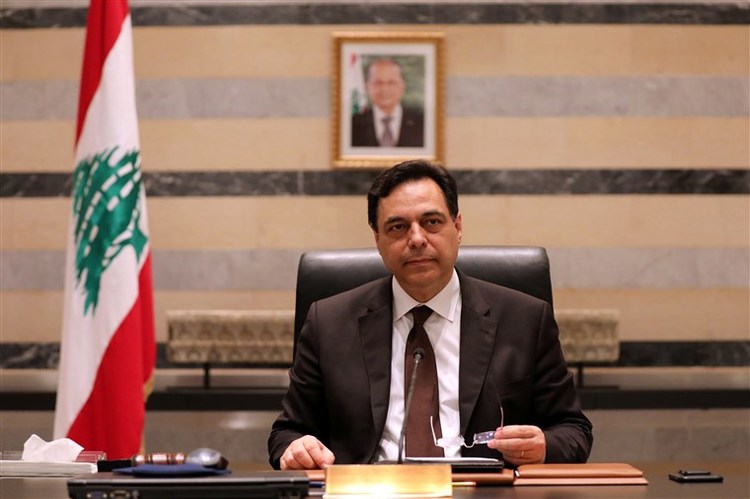The Lebanese Prime Minister Hassan Diab announced his resignation almost a week after the massive explosion that devastated the capital, Beirut, killing some 220 people and wounding 6,000 others.
The announcement was made in a national TV address by the Prime Minister on Monday evening.
Protesters have taken to the streets in protest of country’s leaders of culpability through their alleged negligence and corruption and clashed with police for a third straight day.
The massive blast was caused by the detonation of 2,750 tonnes of ammonium nitrate stored unsafely at the port for years.
President Michel Aoun has asked the government to stay on in a caretaker capacity until a new cabinet is formed.
Mr Diab, who was appointed prime minister in January after months of deadlock, said his government had “gone to great lengths to lay out a road map to save the country”.
But corruption in Lebanon was “bigger than the state” itself, and “a very thick and thorny wall separates us from change; a wall fortified by a class that is resorting to all dirty methods in order to resist and preserve its gains”, he said.
“Today we follow the will of the people in their demand to hold accountable those responsible for the disaster that has been in hiding for seven years, and their desire for real change,” Mr Diab said.
Parliament will now have to decide on a new prime minister which may be a rather complex process due to the country’s complex political system. Power in Lebanon is shared between leaders representing the country’s different religious groups.
Additionally, following the end of the 1975-1990 civil war a number of warlords entered politics and still control large parts of the country’s political, economic and social sectors.
Many protesters blame this entrenched system for the country’s corruption.
On Monday police clashed with protesters who have continued in the capital following the government’s resignation.
The death toll from last week’s explosion has risen to 220 with 110 people still missing. Many foreign workers and lorry drivers were among the missing, he told Al Jadeed TV channel.
The huge blast damaged buildings in a radius of several kilometres in Beirut, leaving more than 200,000 people homeless or living in homes with no windows or doors.
Officials estimate that the explosion caused more than $3bn (£2.3bn) of damage and that Lebanon’s collective economic losses may amount to $15bn.
The country was already suffering a major economic downturn before the explosion, with families pushed into poverty and hunger.

